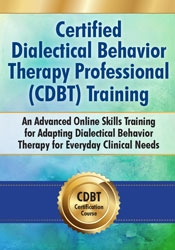Dialectical Behavior Therapy (DBT) For Addictions
The Bridge-Burning exercise to remove the means of acting on harmful behavior

The core concept of Bridge-Burning is simple: You cannot act on a harmful behavior if you proactively remove the means.
Bridge-Burning refers to proactively removing the means of acting on your urges to engage in addictive behaviors. The concept of Bridge-Burning recognizes that relapse into harmful behaviors happens more easily when there is the immediate opportunity to act on impulses. Eliminating the opportunities and/or inserting barriers between urge and action will result in more opportunities to practice skills.
Bridge-burning works best in conjunction with other skills. When we remove the ability to act on harmful behaviors, we need to replace them with something new and skillful. Be careful not to trade one unhealthy behavior for another.
You can use Bridge-Burning with your next client. Just download the free guided worksheet from my book, The Expanded Dialectical Behavior Therapy Skills Training Manual, 2nd Edition: DBT for Self-Help and Individual & Group Treatment Settings, to get started.
Bridge-Burning refers to proactively removing the means of acting on your urges to engage in addictive behaviors. The concept of Bridge-Burning recognizes that relapse into harmful behaviors happens more easily when there is the immediate opportunity to act on impulses. Eliminating the opportunities and/or inserting barriers between urge and action will result in more opportunities to practice skills.
Bridge-burning works best in conjunction with other skills. When we remove the ability to act on harmful behaviors, we need to replace them with something new and skillful. Be careful not to trade one unhealthy behavior for another.
You can use Bridge-Burning with your next client. Just download the free guided worksheet from my book, The Expanded Dialectical Behavior Therapy Skills Training Manual, 2nd Edition: DBT for Self-Help and Individual & Group Treatment Settings, to get started.
Do you want to revolutionize your practice?

Imagine your toughest clients...the clients that other therapists have given up on...
YOU can be the therapist finally able to help them break through severe and chronic problems including personality disorders, self-destructive behaviors and more!
By completing Dr. Pederson's Certified Dialectical Behavior Therapy Professional (C-DBT) Training available in a convenient online format, designed to fit seamlessly into your busy schedule.
When you complete this intensive training, you'll be prepared to effectively apply proven DBT techniques and tools in your practice in a flexible way, specific to your client population, to improve treatment outcomes and your practice.
Plus, you can end this course and become a Certified Dialectical Behavior Therapy Professional (C-DBT) at no additional cost to you!
YOU can be the therapist finally able to help them break through severe and chronic problems including personality disorders, self-destructive behaviors and more!
By completing Dr. Pederson's Certified Dialectical Behavior Therapy Professional (C-DBT) Training available in a convenient online format, designed to fit seamlessly into your busy schedule.
When you complete this intensive training, you'll be prepared to effectively apply proven DBT techniques and tools in your practice in a flexible way, specific to your client population, to improve treatment outcomes and your practice.
Plus, you can end this course and become a Certified Dialectical Behavior Therapy Professional (C-DBT) at no additional cost to you!





